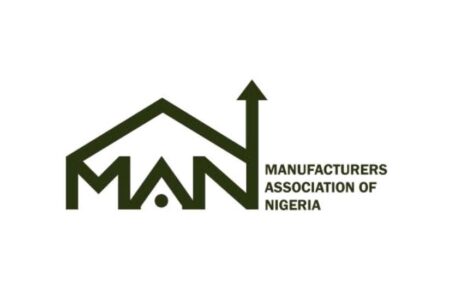Manufacturers in Nigeria are facing a severe crisis, with inventory of unsold finished products of manufacturers in Nigeria soaring to N1.24 trillion in the first half of 2024, on account of the low purchasing power of consumers in the country.
The increase in unsold inventory represents a whopping rise of 357.6 per cent in 2024 compared to N271 billion recorded in the first half of 2023.
The purchasing power of many Nigerians has been severely impacted by rising inflation and economic challenges, leaving many unable to afford basic needs of daily living.
The Manufacturers Association of Nigeria (MAN) disclosed this in its H1 24 Economic Review released on Monday.
MAN attributed the “alarming increase” to declining consumer purchasing power due to escalating inflation, subsidy removal, and the devaluation of the naira.
“The inventory of unsold finished products in the manufacturing sector surged by 357.57 per cent year-on-year, reaching N1.24 trillion in H1 2024.
“The high levels of unsold inventories reflect the challenges faced by consumers and the need for interventions to stimulate demand and improve the sector’s performance,” it stated.
The report also lamented that the over 200 per cent increase in electricity tariffs imposed by DisCos significantly raised the cost of electricity for manufacturers.
According to the report, manufacturers spent N238.31 billion on alternative energy sources in the first half (H1) 2024, a 7.69 per cent increase from second half (H2), 2023.
The association said: “The electricity supply to industries showed some improvement in H1 2024, with average daily supply hours increasing to 11.28 hours per day. However, the increase in electricity tariffs by over 200 percent imposed by DisCos significantly raised the cost of electricity for manufacturers. This, coupled with ongoing power outages, placed additional financial strain on the sector.”
It noted that the surge in costs was driven by higher prices for diesel, gas, and other energy sources, as well as the need for manufacturers to invest in self-energy generation due to unreliable power supply from the national grid.
Speaking on the economic performance in the period under review the director-general of MAN, Segun Ajayi-Kadir said, “The first half of 2024 was marked by significant challenges for Nigeria’s manufacturing sector, including high operational costs, declining consumer demand, and rising inflation.
“While some sectors showed resilience and growth, others struggled with declining production values, rising inventories, and reduced employment. The report underscores the urgent need for Nigeria to implement decisive and coherent economic reforms to address these challenges.”
“Key areas of focus include enhancing policy consistency, improving the business environment, and fostering economic diversification. The success of these reforms will be crucial in reversing the current economic downturn, creating jobs, reducing inflation, and improving the overall welfare of Nigerian citizens.
“As the country navigates through these turbulent times, the resilience of its policy framework and the effectiveness of its economic management will determine the path forward.”
The review noted that “in Nigeria, capacity utilisation in the manufacturing sector showed a slight year-on-year decline to 56.4 percent in H1 2024, from 56.5 percent in H1 2023. However, there was a 2.8 percentage point increase compared to H2 2023, reflecting some recovery. The sector faced significant challenges, including high energy costs due to a 200 percent increase in electricity tariffs, forex scarcity, and declining consumer demand. These factors collectively resulted in elevated operational costs and a difficult business environment for manufacturers.
“The real manufacturing output in Nigeria declined by 1.66 percent year-on-year in H1 2024, falling to N1.34 trillion from N1.36 trillion in H1 2023, while the manufacturing sector’s local raw material sourcing improved slightly to 56.03 per cent in H1 2024, up from 55.4 per cent in H1 2023. Also, investment in the manufacturing sector continued to rise, reaching N250.13 billion in H1 2024, a 29.63 percent year-on-year increase,” it said.Manufacturers











